Verdict: Supergirl is firing on all cylinders with Falling, an excellent episode that carves a gripping, emotionally resonant slice of superhero TV out of a well-trodden comic-book premise.
Review
I’ve been hesitant to use the term ‘best episode yet’ in these reviews so far. That’s partially because there hasn’t been a clear singular front-runner in Supergirl’s first season (rather a handful of very good episodes that are hard to separate in terms of quality) but also because the term is somewhat unreliable, especially with a series as variable as Supergirl that’s still in its first season. After all, the show’s writers are still getting a feel for what works and what doesn’t, so there’s every chance that an even better episode will come along next week and entirely invalidate that claim. Falling, however, is the first episode that really earns that title – it’s the best-constructed episode in that it coherently ties together all the separate parts of the show, grounds its story of the week in meaningful character development and sustains a remarkably intense pace after the opening title flashes up.
The story of the week in question was Kara’s infection by Red Kryptonite, a substance that unearthed her darkest impulses. This is another concept ripped from the classic book of superhero tropes, and it’s been executed in a shallow and unintentionally amusing manner before (Spider-Man 3, ahem). Falling, however, nails this concept for a multitude of reasons, but primarily because it gives the idea the focus and breadth it needs. Red Kryptonite affects every aspect of Kara’s life, not just a section, and provides at least some kind of shift in just about all of her important personal relationships, alongside a substantial change in the city’s opinion of Supergirl – and, crucially, it lets these changes stick, making it abundantly clear that the status quo has genuinely been changed across the board for Kara thanks to Red Kryptonite.
The hero changing his/her personality is often played for comedy (again, that’s you, Spider-Man 3), and Falling does engage in a bit of that, particularly in the early sections – but, to its credit, this comedy is restrained and confined to the more light-hearted first act, complementing rather than jarring with the more serious material later on. Ultimately, the lack of comedy is mostly due to the encouraging fact that Falling is far more interested in using Red Kryptonite as a substantial means of exploring the dark secrets that lurk beneath Kara’s personal relationships rather than using it for fun but cheap gimmicks.
This exploration of Kara’s relationships is extremely effective because everything Kara does to alienate and upset her friends and family comes with a distinct element of truth to it, one that forces Kara and co to confront the dark realities that they previously could cover up and ignore. This really allows Falling to flesh out these relationships in a way that allows shock value to stem from genuine character insights that logically build from previous episodes’ development rather than the other way around. It’s shocking to see Kara to come onto James in an unusually aggressive manner, or angrily tell Alex that she hates Kara, but these moments are shocking and emotionally resonant because all of the evidence needed to support these revelations can be found in previous episodes (Alex’s lingering resentment of Kara has been substantially covered, and Lucy did always seem like a bit of a barrier for the pining Kara); it’s all stemming from what Supergirl has done before as opposed to random conflict plucked simply created for the sake of it, making this conflict feel organic and satisfying to watch.
 The other strength of Falling’s usage of Red Kryptonite is the way that Kara’s actions under the influence of the substance have a substantial and noticeable impact that will clearly reverberate well beyond this episode (it’s notable that the promo for next week’s Manhunter-centric episode focuses entirely on Kara’s efforts to rehabilitate her image). The headline example of this is the public outing of Hank Henshaw as the Martian Manhunter – it’s certainly the biggest long-term twist of the episode, and it’s the development that’s likely to alter the status quo the most. And while that twist was laudable in its audacity in how it completely upends the DEO dynamic to the point where it’s uncertain just what the new status quo will be, it’s just one example of many within Falling.
The other strength of Falling’s usage of Red Kryptonite is the way that Kara’s actions under the influence of the substance have a substantial and noticeable impact that will clearly reverberate well beyond this episode (it’s notable that the promo for next week’s Manhunter-centric episode focuses entirely on Kara’s efforts to rehabilitate her image). The headline example of this is the public outing of Hank Henshaw as the Martian Manhunter – it’s certainly the biggest long-term twist of the episode, and it’s the development that’s likely to alter the status quo the most. And while that twist was laudable in its audacity in how it completely upends the DEO dynamic to the point where it’s uncertain just what the new status quo will be, it’s just one example of many within Falling.
For instance, there’s the matter of the city turning on Supergirl after she’s seen publicly committing crimes. While this happens all the time in superhero shows, Falling handles this development in a pleasingly mature way that doesn’t oversimplify the situation into a false ‘love/hate’ dichotomy. Falling settles into an intriguing middle ground at the end of the day; the city doesn’t suddenly forgive Supergirl for everything when she’s back to her normal self, but there’s no indication that she’s become a public enemy of any sort – indeed, the woman whose condemnation had a considerable influence over the population does forgive Supergirl at the end. It’s a really great take on this traditional idea, taking something that’s often cleanly wrapped up with no further repercussions and complicating it a great deal, emphasising that while the wounds inflicted by Supergirl’s actions will heal, that process is long, arduous and doesn’t just happen with no effort. Almost everything in Falling feels like a considered and organic development, and it’s particularly with the idea of the city turning against Supergirl where the episode’s admirable refusal to implement cheap and easy shortcuts, instead taking a longer and more patient path, is particularly visible.
And then there’s the personal consequences of Kara’s actions – which are varied and complicated, with every person Kara interacted with under the influence reacting in different ways, from betrayed and alienated to instantly forgiving to acknowledging that further discussion may be needed. It’s good to see Falling opt for a complicated gamut of reactions that feel true to the characters rather than just universal forgiving or condemnation, but the most notable aspect of these reactions is every character acknowledges the limited truth behind Kara’s harsh words and has to re-consider everything about their relationship with Kara with these revelations in mind. Next week could easily miss the mark, but it certainly looks as if the revelations here have provided substantial and long-lasting changes by unearthing previously unspoken truths that could transform the meaning of Kara’s relationships – for Kara’s budding romance with James, Kara’s vitriol clearly grounds this previously innocent flirtation in cynical and petty jealousy that somewhat taints the relationship as a whole. It’s hard to see every relationship changing to the degree of Kara and James’ given the generally milder reactions all round, but there’s a definite sense nonetheless that Falling has re-contextualised what these characters mean to each other on a long-term basis, and that’s certainly encouraging.
At the centre of Falling, however, there’s a central figure holding it all together. Just about none of the Red Kryptonite material would work without Melissa Benoist, who was handed one hell of a challenge by the constant and often major shifts in personality across the episode that Kara experiences. It’s arguably Benoist’s best work on the series yet, as she handles all these personality shifts with aplomb – there’s a real sense of an escalation of the effects on Kara in Benoist’s performance, as she seamlessly and compellingly shifts from petty to cruel to outright villainous. It’s impressive enough that Benoist can credibly play both innocent, all-loving hero who saves little girls from bullies and cackling super-villain who blows up cop cars in the same episode, but it’s also the way that she handles all the smaller, subtler intermediary shifts between those two extremes that really acts as a testament to her considerable talent. Many will disagree on the quality of the show itself, but it’s hard to deny that Melissa Benoist’s casting was one hell of a move on the part of the casting directors, and it’s a decision that continues to pay dividends for Supergirl week after week.
It feels churlish and pedantic to nitpick such a strong episode, but there are some flaws to be considered here. The substance of the episode is almost entirely excellent, but the framework behind it all is undoubtedly a little rickety. The excuses for Kara’s infection and subsequent curing of Red Kryptonite are extremely thin, grounded in dubious logic and credulity-breaking technobabble (comic-book nonsense science has never been much of a big deal for me, but Max’s instant cure feels cheap considering how difficult it is to assuage the impacts of Red Kryptonite elsewhere), and the speed of the city’s betrayal of Supergirl, although handled well, feels rushed. These are simple errors of logic, something a quick rewrite could have fixed rather than major issues with the story itself – it’s just that Falling could have been a little tighter-scripted in some areas.
On the whole, however, this was exemplary stuff – an episode that stands tall as the best episode of Supergirl thus far. It’s thoughtfully written, exploring the consequences of its central plot device in a broad and compelling way that doesn’t cheaply wrap everything up within the hour, progresses almost every major relationship on the show to a significant degree and possesses one hell of a versatile central performance from Melissa Benoist. Falling makes a very compelling case indeed for Supergirl to continue and keep improving – because if this is the type of episode the show can crank out when it’s on the top of its game, it’s hard to say that Supergirl doesn’t at least deserve a second season.
Odds & Ends
- Non watch: he plays into the reasoning behind Red Kryptonite, but season one’s central villain doesn’t appear here. Number of appearances from the villain: Non.
- Maxwell Lord’s involvement in the episode is… odd. He plays a major role in the plot, but Peter Facinelli only briefly appears, and he’s given barely any dialogue – the dialogue he does get is wholly exposition.
- Siobhan looks like she’s on the road to becoming Silver Banshee after getting fired – will the transformation happen next episode?
- The opening scene set on The Talk was a thinly veiled bit of corporate synergy, but I liked it all the same – an effective, if cynical opening scene.
- As a side note, the poster for the Flash crossover looks fantastic. My money’s on the Flash to win that foot race, for the record.
- Next Monday’s episode is titled Manhunter, and it looks like it’ll flashback to the real Hank Henshaw’s sacrifice for J’onn. Considering how good the previous Manhunter-centric episode was, this looks like an exciting prospect.
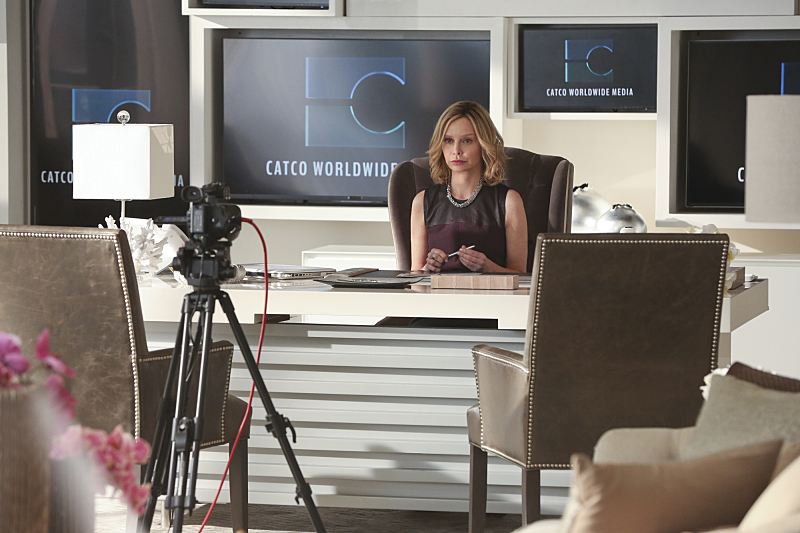
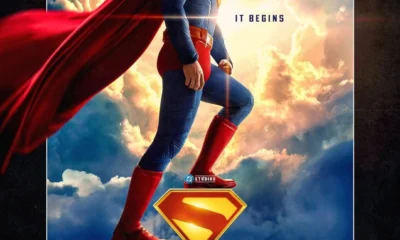
 Opinion5 months ago
Opinion5 months ago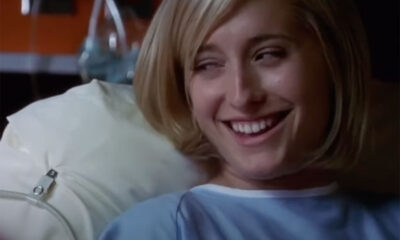
 Smallville6 months ago
Smallville6 months ago
 Smallville6 months ago
Smallville6 months ago
 Lois & Clark6 months ago
Lois & Clark6 months ago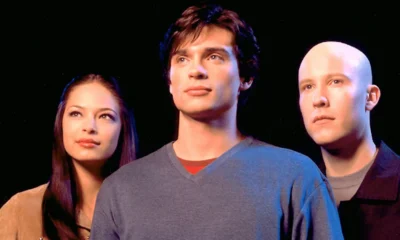
 Smallville5 months ago
Smallville5 months ago
 Smallville6 months ago
Smallville6 months ago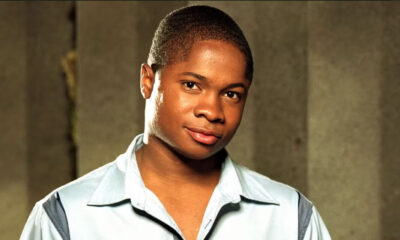
 Smallville5 months ago
Smallville5 months ago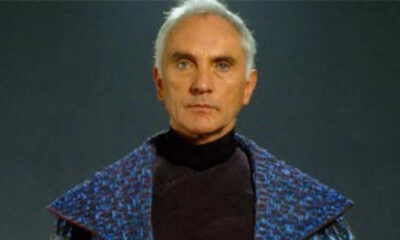
 Smallville4 months ago
Smallville4 months ago
 The other strength of Falling’s usage of Red Kryptonite is the way that Kara’s actions under the influence of the substance have a substantial and noticeable impact that will clearly reverberate well beyond this episode (it’s notable that the promo for next week’s Manhunter-centric episode focuses entirely on Kara’s efforts to rehabilitate her image). The headline example of this is the public outing of Hank Henshaw as the Martian Manhunter – it’s certainly the biggest long-term twist of the episode, and it’s the development that’s likely to alter the status quo the most. And while that twist was laudable in its audacity in how it completely upends the DEO dynamic to the point where it’s uncertain just what the new status quo will be, it’s just one example of many within Falling.
The other strength of Falling’s usage of Red Kryptonite is the way that Kara’s actions under the influence of the substance have a substantial and noticeable impact that will clearly reverberate well beyond this episode (it’s notable that the promo for next week’s Manhunter-centric episode focuses entirely on Kara’s efforts to rehabilitate her image). The headline example of this is the public outing of Hank Henshaw as the Martian Manhunter – it’s certainly the biggest long-term twist of the episode, and it’s the development that’s likely to alter the status quo the most. And while that twist was laudable in its audacity in how it completely upends the DEO dynamic to the point where it’s uncertain just what the new status quo will be, it’s just one example of many within Falling. 
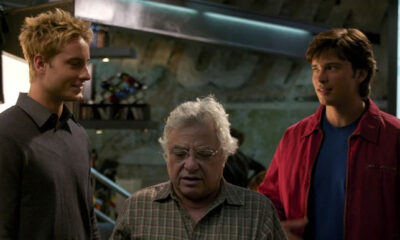

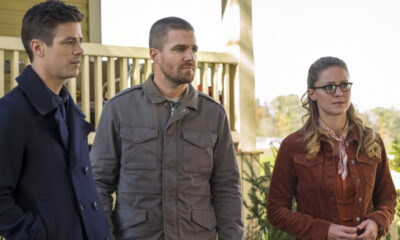



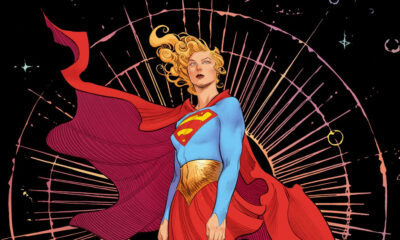





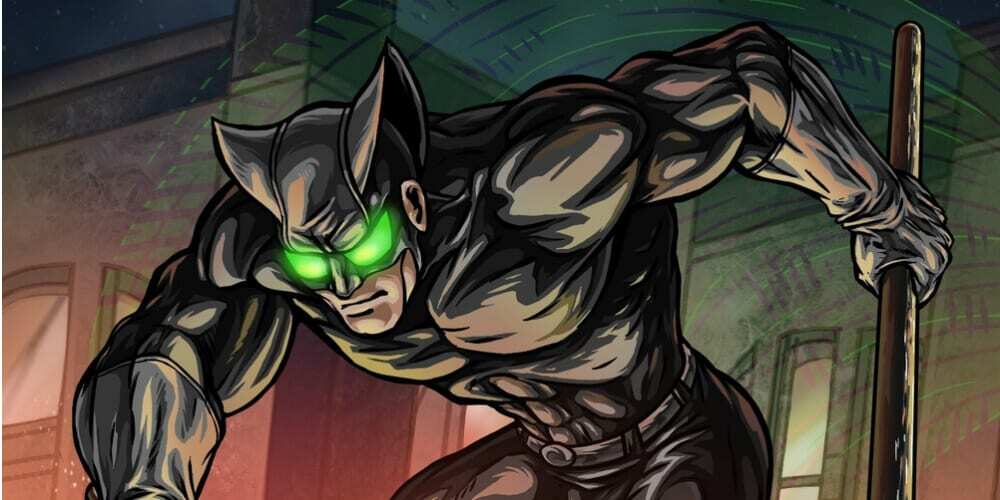
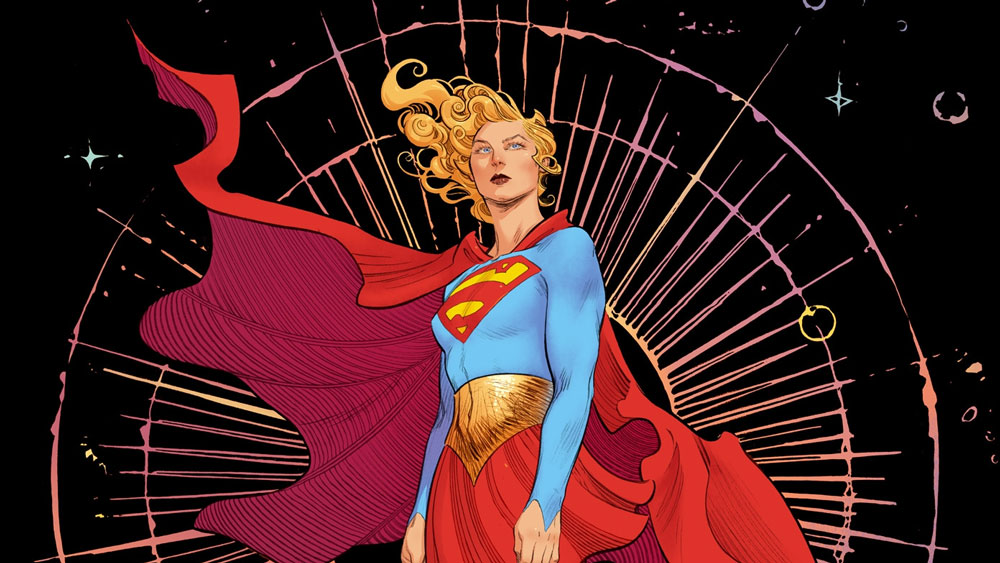
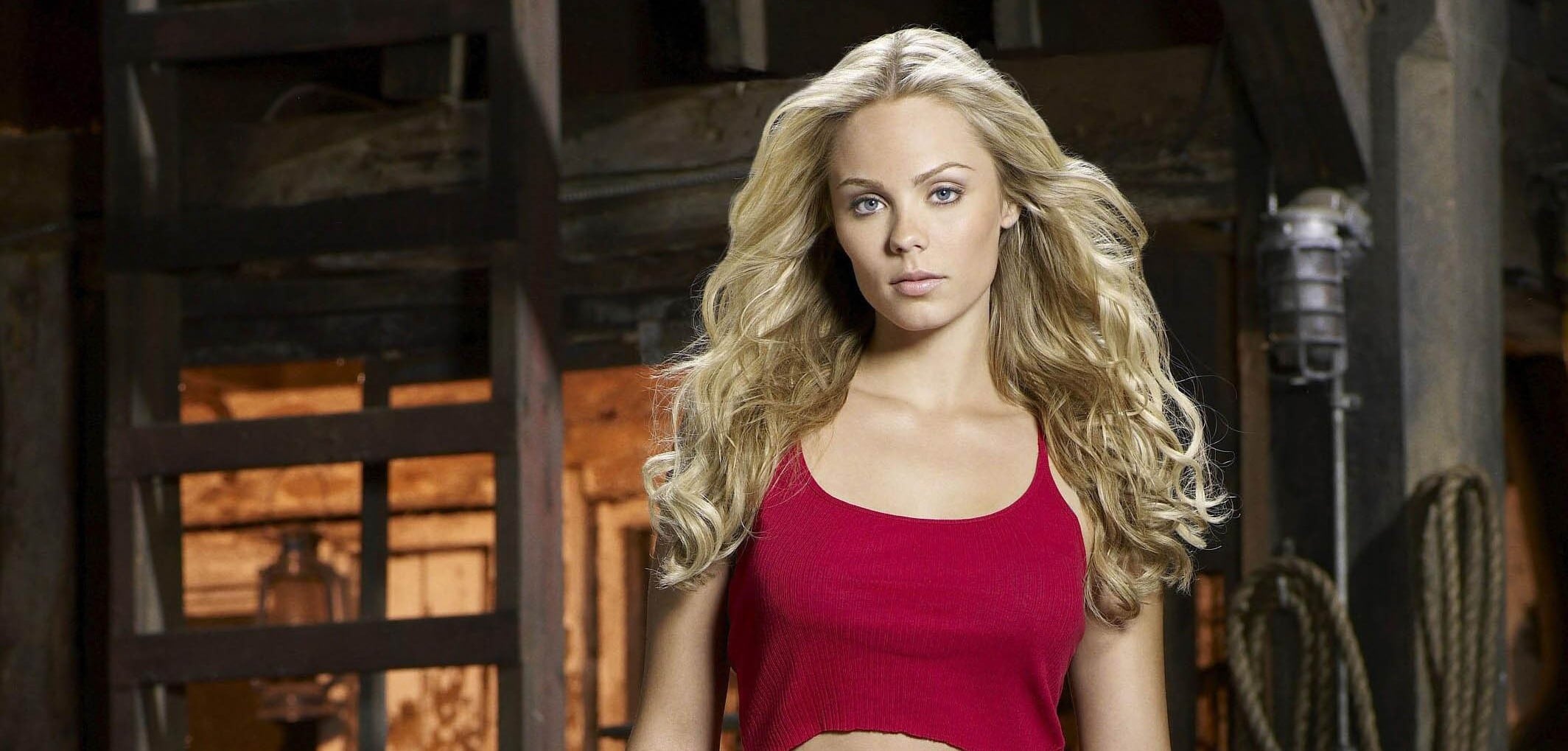





Matthew Raydor
March 16, 2016 at 4:51 pm
Siobhan Smythe definitely needs to transform next episode because the one after that is the FLASH visit and she is full blown SILVER BANSHEE. Hope she has the Banshee scream down.
The ‘real’ Hank didn’t sacrifice himself he was killed by Jeremiah Danvers to save Jonn Jonzz. Loved “SOLITUTE” more than “FALLING” but it was close.
Eric
March 17, 2016 at 10:17 pm
My biggest problem with this episode actually it that it ignores it’s foundation. Remember, this is supposed to be a world where Superman already exists. Don’t you think that 1- Jimmy would have contacted Supes as soon as he new what was going on, and 2- even if he didn’t Superman would have dropped everything for his cousin after seeing Cat’s broadcast. The show doesn’t need to focus on Superman, but for us fans of the original, they do need to have believable reasons for him not to show up when major things like this (and a hostile force of kryptonians) happen.